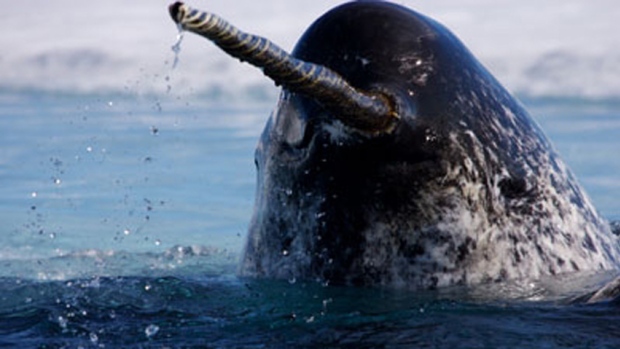Canadian narwhal tusk smuggler faces extradition hearing

A man from New Brunswick in Atlantic Canada, who was convicted of smuggling narwhal tusks into the United States, is facing an extradition hearing in April.
The U.S. Department of Justice wants to try Gregory Logan, of Woodmans Point, for money laundering.
Logan’s defence lawyer Brian Greenspan described the case as “international double jeopardy” during a brief court appearance in Saint John on Monday to set a date for the hearing.
It will be held in Saint John Court of Queen’s Bench on April 1. Two days have been set aside.
Logan, who served 25 years as an RCMP constable, including a posting in Canada’s eastern Arctic territory of Nunavut, was convicted in October of seven counts of trafficking offences relating to 250 narwhal ivory tusks.
He was fined a record $385,000 and given an eight-month conditional sentence that includes four months of house arrest.
Greenspan said when it comes to extradition, it’s not the specific offence that matters, but rather the conduct. In this case, Greenspan said the conduct is selling the tusks illegally, which he will argue his client is already being punished for.
Tusks hid in truck
Logan bought tusks mostly from Inuit co-ops in Nunavut and sold them to importers and collectors in the U.S.
Narwhals are medium-sized whales that live year-round in the Arctic. Male narwhals have a straight tusk that can measure up to 2.5 metres long.
The narwhal is a protected species in the Convention in International Trade in Endangered Species of Wild Fauna and Flora.
Only Inuit people can legally harvest narwhal in Canada. It’s used as a source of food and income.
Tusks can fetch up to $100 per inch, according to the wildlife policy adviser for Nunavut Tunngavik Incorporated, the land clams organization that represents the Inuit of Nunavut
About 500 narwhal are harvested legally each year in Nunavut, from an estimated population of more than 100,000 animals.
Logan hid narwhal tusks in his truck and trailer and drove from St. Stephen, N.B., to Calais, Me., where he deposited the tusks for shipment to a U.S. buyer, officials said.
The offences occurred between 2003 and 2009.



